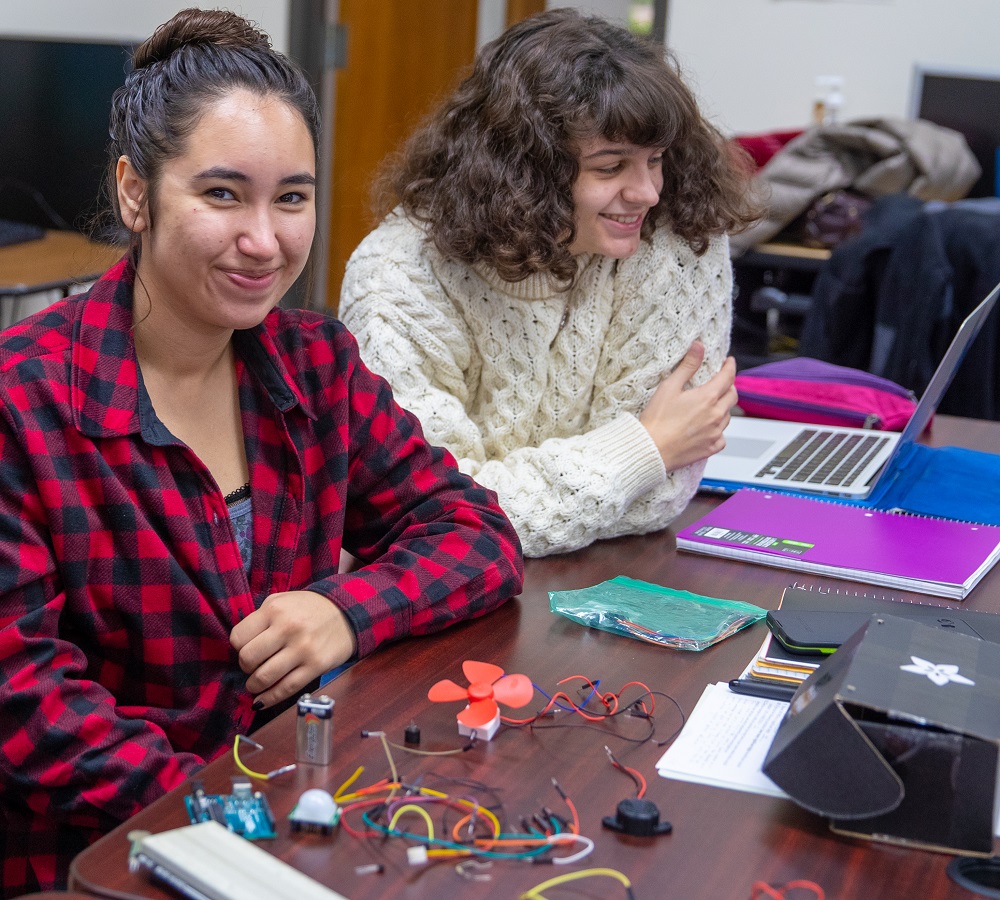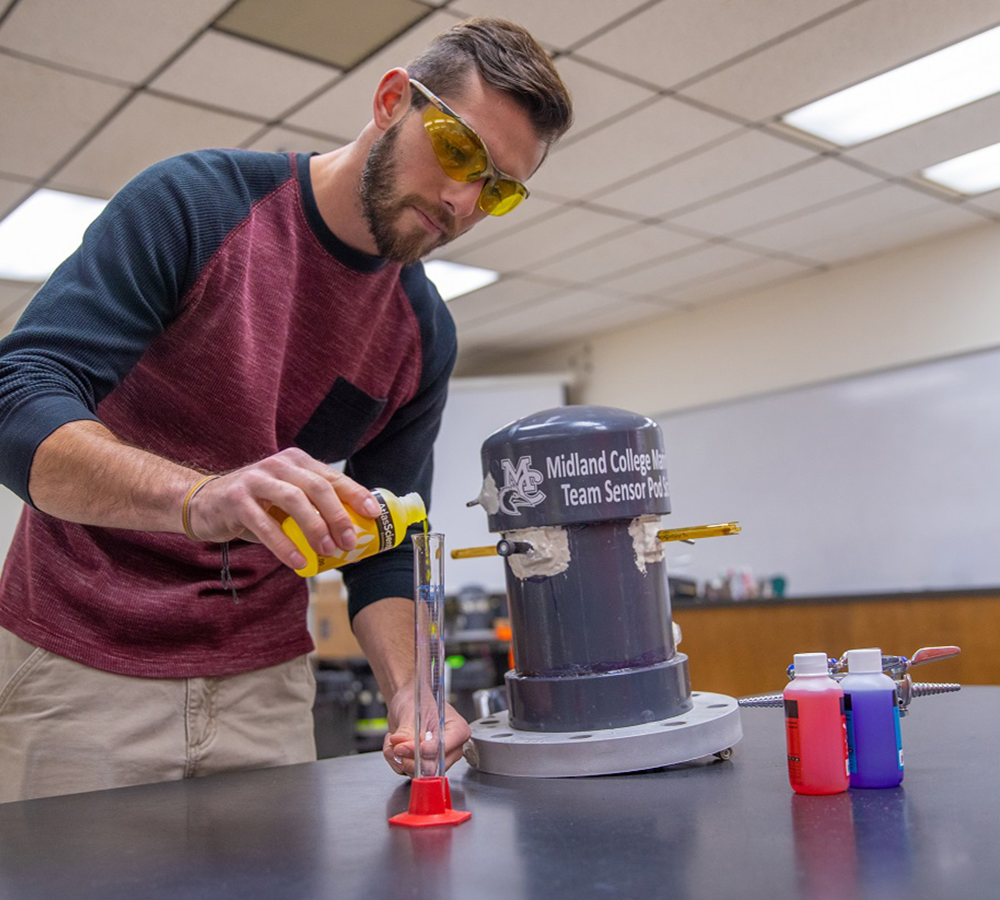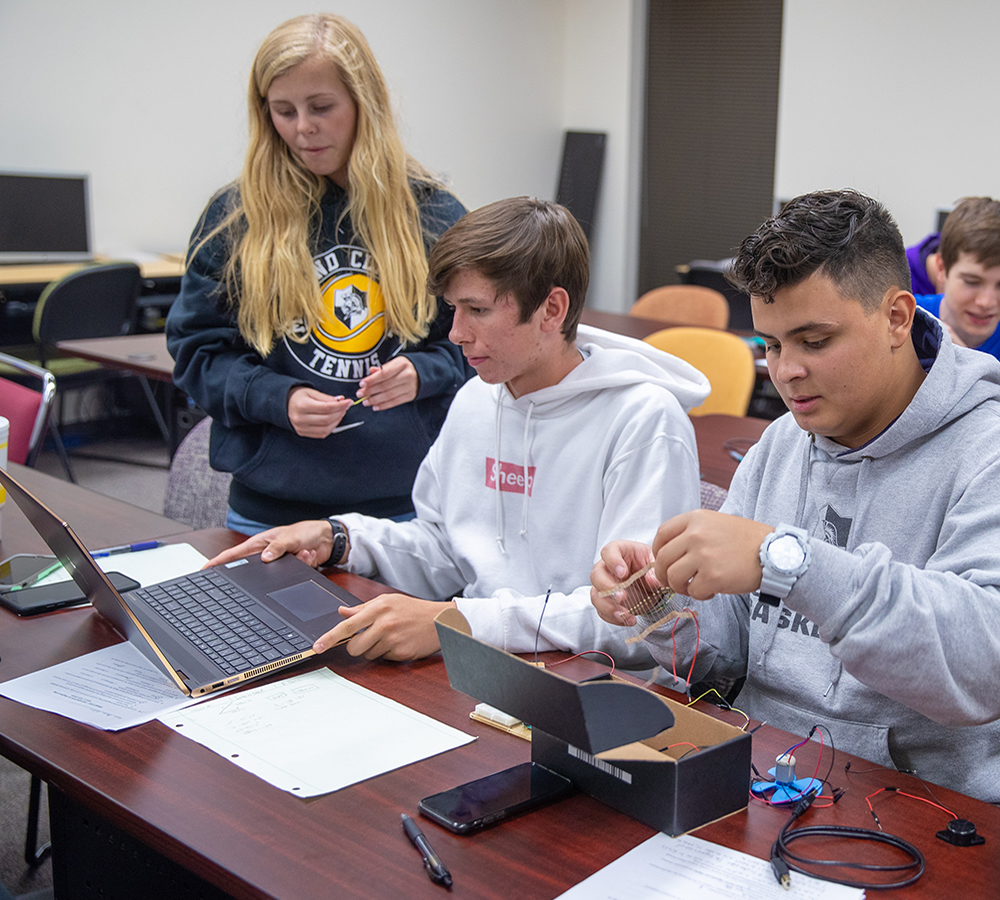Engineering
Everything is engineered. Every building, bridge, highway, pipeline, vehicle, toy, computer, athletic shoe – every manmade object is taken from idea to reality by engineers. Midland College’s Engineering program is designed for students planning to transfer to four-year institutions, and includes courses in physics, chemistry, math, and engineering.
The Engineering Field of Study closely matches the first two years of bachelor’s degree programs in Engineering offered at four-year colleges. With this foundation, you will shape your future.
Engineering is the application of mathematical and scientific knowledge to practical problems. Engineers use their knowledge of math and science skills to improve existing processes or find solutions to new problems in a practical and cost-effective manner.
Because engineers rely heavily on quantitative reasoning and logic based problem solving, students early in their academic careers should focus on the mathematic and scientific pre-requisite classes to make their transition to four-year institutions as seamless as possible.
Students pursuing a degree in engineering choose to focus their studies on one (or sometimes more) disciplines in engineering including mechanical engineering, petroleum engineering, civil engineering, chemical engineering or electrical engineering. Others may choose to major in newer, more specialized fields like environmental engineering, computer engineering or biomedical engineering.
Midland College has articulation agreements with a variety of schools and programs
to assist our students when transferring to a university.
 |
 |
 |
Program Details
Select links below for details
Marketable Skills
Pursuing a degree in this field of study will provide marketable skills in these areas:
- Reading Comprehension – Reading work-related information
- Speaking – Talking to others
- Active Listening – Listening to others, not interrupting, and asking good questions
- Complex Problem Solving – Noticing a problem and figuring out the best way to solve it
- Writing – Writing things for co-workers or customers
- Critical Thinking – Thinking about the pros and cons of different ways to solve a problem
- Monitoring – Keeping track of how well people and/or groups are doing in order to make improvements
- Systems Analysis – Figuring out how a system should work and how changes in the future will affect it
- Time Management – Managing your time and the time of other people
- Coordination – Changing what is done based on other people's actions
- Judgment and Decision Making – Thinking about the pros and cons of different options and picking the best one
- Systems Evaluation – Measuring how well a system is working and how to improve it
- Active Learning – Figuring out how to use new ideas or things
- Social Perceptiveness – Understanding people's reactions
- Management of Personnel Resources – Selecting and managing the best workers for a job
- Science – Using scientific rules and strategies to solve problems
Career Opportunities
There are a number of exciting and in-demand career options, including
- Aerospace Engineering
- Biomedical Engineering
- Chemical Engineering
- Civil Engineering
- Electrical Engineering
- Environmental Engineering
- Materials Engineering
- Mechanical Engineering
- Nuclear Engineering
- Petroleum Engineering
Each of the career options listed above links linked to the bls.gov job description and outlook page for that field.
Demand
According to the U.S. Bureau of Labor Statistics (BLS), employment in architecture and engineering occupations is projected to grow 3 percent from 2019 to 2029, about as fast as the average for all occupations. About 74,800 new jobs are projected to be added. Most of the projected job growth in this group is in the engineer occupations, as their services will be in demand in various areas such as rebuilding of infrastructure, renewable energy, oil and gas extraction, and robotics.
The median annual wage for architecture and engineering occupations was $83,160 in May 2020. The median annual wages for all occupations in this group was higher than the median annual wage for all occupations in the economy, which was $41,950.
Engineering Club
The purpose of the Midland College Engineering Club is to provide social opportunities to pre-engineering students while promoting academic support and excellence, and to provide networking opportunities to pre-engineering student with members of the community and universities. For questions regarding the Engineering Club, please contact Ahmed Algarhy at amohamed@midland.edu or (432) 685-4618.
Midland College has articulation agreements with a variety of schools and programs to assist our students with transferring to a university. Our curriculum maps, located in the catalog, provide a guided path for general transfer to our top five receiving institutions; however, your Pathways Advisor can assist you with a personalized plan for your specific transfer based on university and program. It is strongly recommended and encouraged that you contact your Pathways Advisor for assistance with course selection if you plan to transfer.
FOR ENGINEERING
MC's Engineering program is committed to the Engineering Fields of Study (FoS) for Chemical, Civil, Electrical, and Mechanical Engineering. The field of study guarantees transfer of ANY classes contained in those FoS to a ChemE, CE, EE, or ME program at a four-year school, including:
To be considered for a scholarship, please follow the link below:
Visit the course catalog for the most complete and up-to-date information.
ContactDepartment ChairAhmed Algarhy, Ph.D Faculty |
Division OfficeMath & ScienceAbell-Hanger Science Faculty Building |
Related Programs |
Related Resources |
Texas A&M-Diamondback Engineering Academy
Students in the Texas A&M-Diamondback Engineering Academy are co-enrolled at Midland College and Texas A&M. For details and contact information, please visit our page linked below.
Apply to MC Now
Thank you for choosing Midland College! If you are here to collect a few credits, take courses to transfer, or here to start a new career, we welcome you.